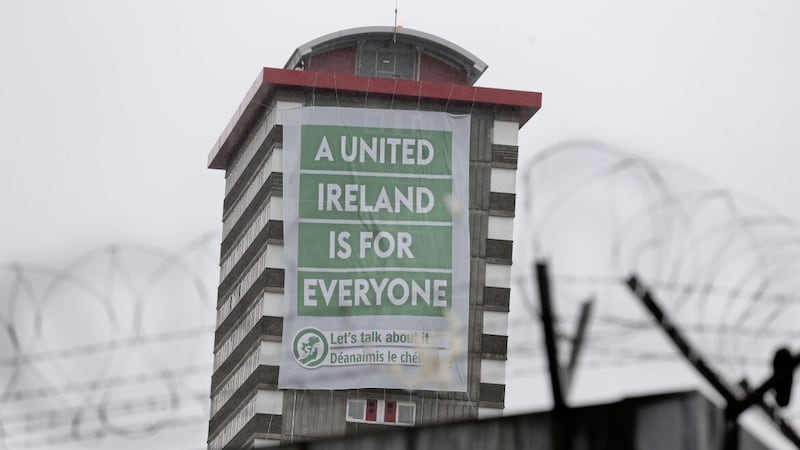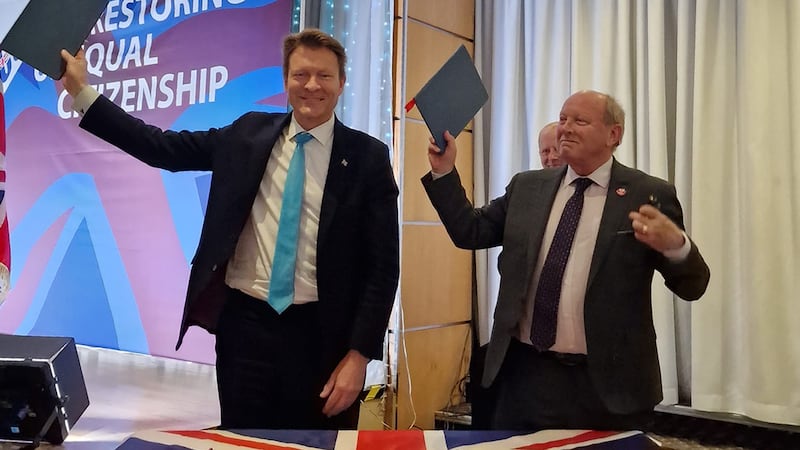According to the latest opinion poll, a united Ireland is now further away than ever.
It shows that only 26 per cent in the north would vote for Irish unity and of the 50 per cent favouring union with Britain, 21 per cent are from a Catholic background.
After 30 years of war and 25 years of chattering, there is now less support for Irish unity than there probably was in 1969 before the Troubles began. The greater the effort for a united Ireland, the less likely it has become. Welcome to the world of unintended consequences.
There are two explanations for this latest finding. One is that the poll is wrong. The other is that those advocating a united Ireland are going about it in the wrong way.
It is unlikely that this particular poll is faulty. Designed by Royal Irish Academy and the University of Notre Dame in the US, it is by far the most scientifically robust of any recent polls, in terms of sampling technique and methodology.
This suggests that the united Ireland brigade have no idea what they are doing (hardly a popular conclusion for nationalism’s great and good to hear).
A united Ireland is a noble aspiration. This column would suggest that the only way to achieve it is through Wolfe Tone’s advocacy of uniting Catholic, Protestant and Dissenter.
This ideal no longer exists, mainly because there are few Wolfe Tone republicans left (cue angry letters to the editor). The Good Friday Agreement (GFA) herded Protestants and Dissenters together and separated them from the Catholics.
Sinn Féin agreed to this division, thereby missing the opportunity to implement Tone’s teachings. They opted instead for political power through sectarian representation.
Today the DUP speaks for one side and Sinn Féin speaks for the other: sectarian extremes hectoring each other across the floor of an intermittent Stormont. In that context a united Ireland is unlikely and probably impossible.
Although the GFA allows for a border poll, the agreement’s political culture and administrative structures reinforce sectarianism. That makes it difficult for nationalists to win such a poll. (Lesson: never sign an agreement with the British government.)
Today the campaign for unity consists of three competing groups, none of which appear to like each other. (Claiming conceptual purity pervades all walks of life. For example, someone once said that the only true science is physics - all the rest are just stamp collecting.)
The first group contains those who advocate unity through violence by continuing the Provisional IRA’s campaign. It failed, so what chance have they?
The second grouping is civic and political nationalism, as represented mainly by Sinn Féin and Ireland’s Future. Sinn Féin practices in-your-face nationalism and argues that because of the IRA’s violence and the party’s politics, a united Ireland will be along soon.
Ireland’s Future is different. It appears to believe that a united Ireland is practically already here, if only the rest of us could see it.
The third group in this trinity of Irish nationalism is the Dublin government. As part of his €190 million Shared Island project, Micheál Martin this week announced another €50 million worth of programmes, including peatlands biodiversity actions, tourism and north-south research.
Unlike the other two groupings, the Shared Island approach is practical rather than aspirational.
The drive for Irish unity forms the core of what is described today as republicanism. Tone would cast a wistful eye on it. In “The Last Republicans”, the Dublin poet, Austin Clarke, wrote that de Valera’s government “quicklimed the last republicans”. Clarke died in 1974 before he could fully witness the wisdom of his words. (Any author who had three books banned by Dublin’s censorship laws is worth reading.)
Tone’s sustainable argument for Irish unity has been around for over two centuries. It was repeated in the 1916 Proclamation’s reference to “differences fostered by an alien government”. Only when those difference have been resolved can we expect meaningful progress towards Irish unity. In the meantime, everything else is just stamp collecting.









